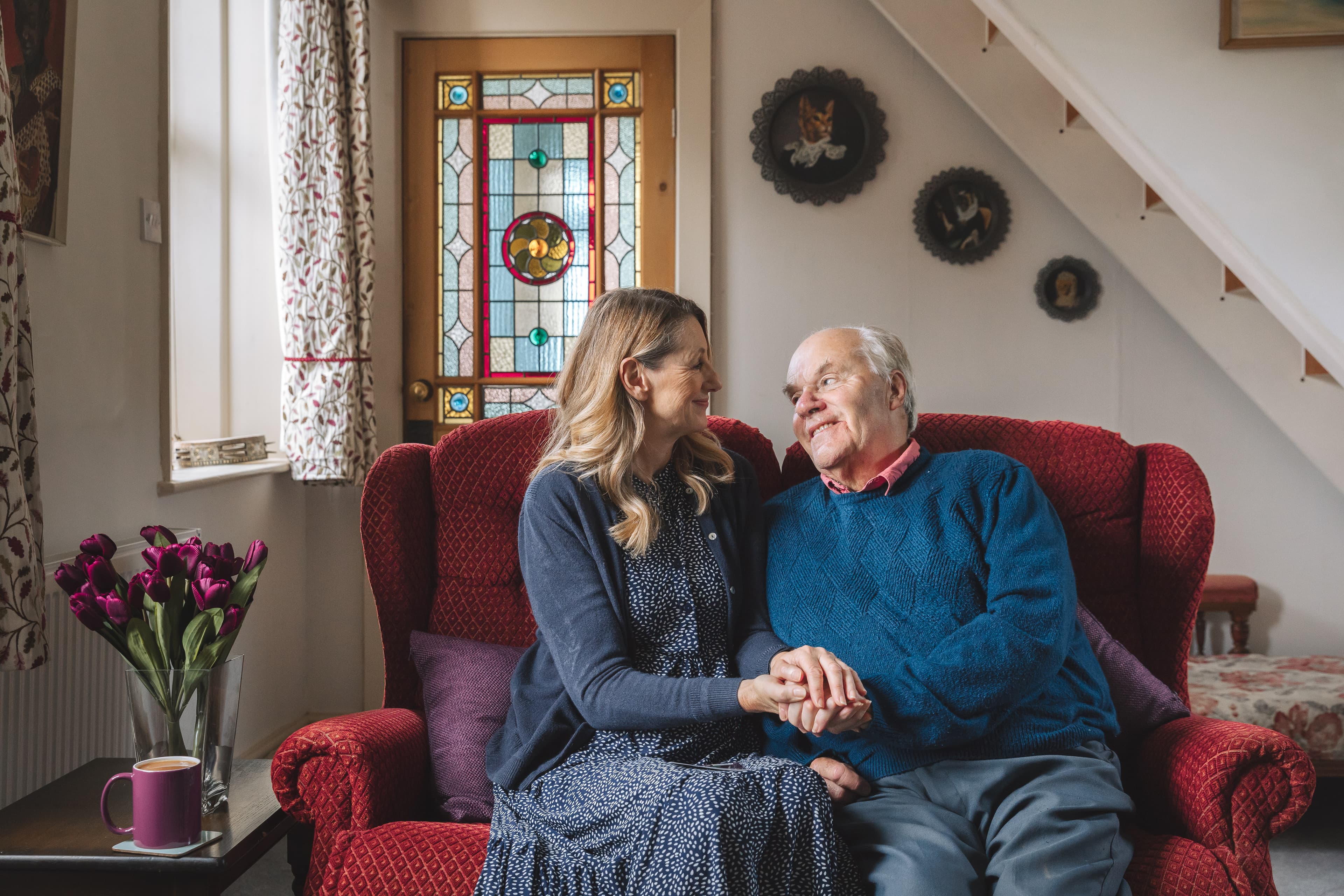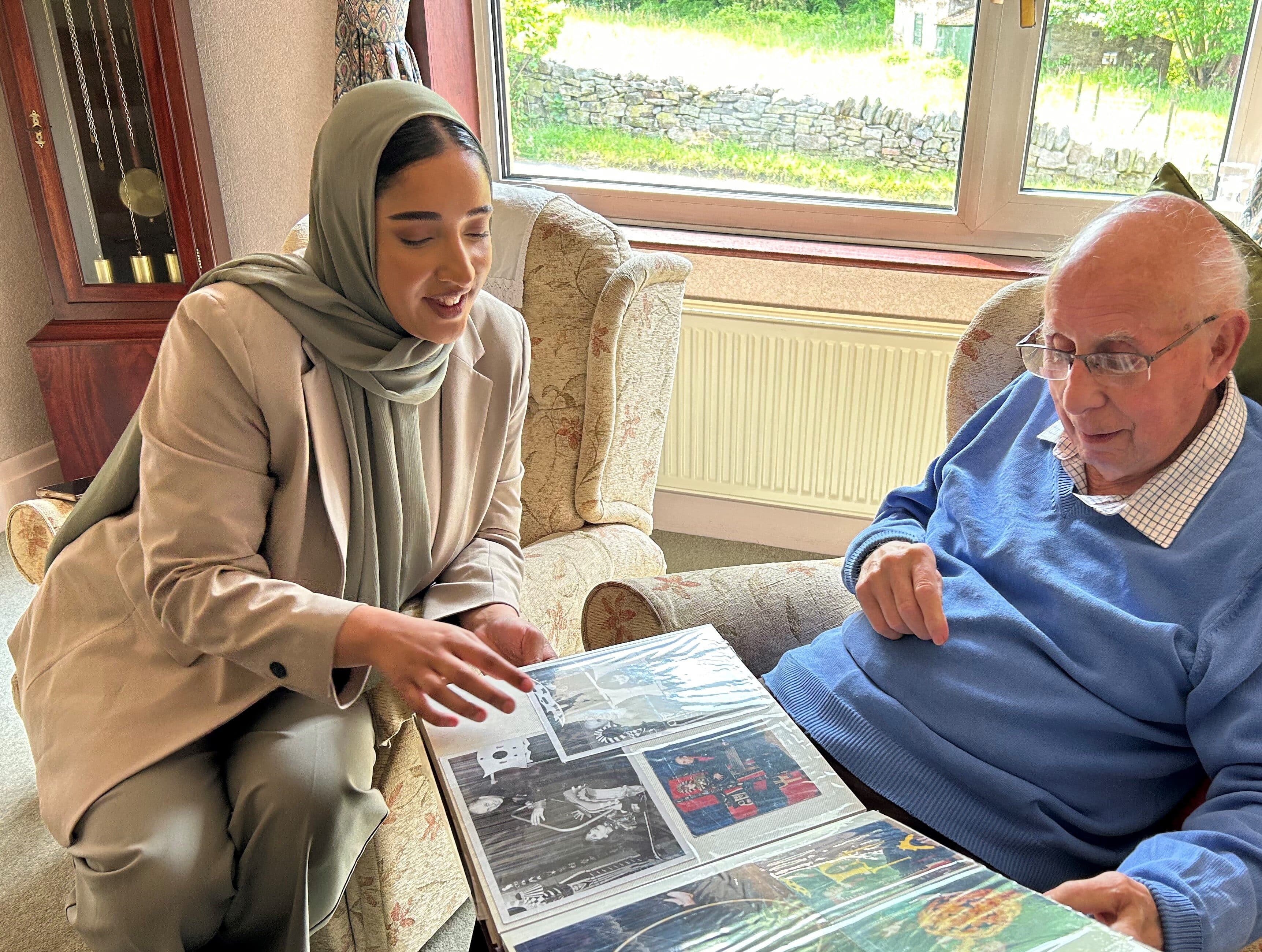
Cerebral palsy care at home
Specialist cerebral palsy care at home from experienced Care Professionals trained to manage the complex needs of those living with this neurological disorder.
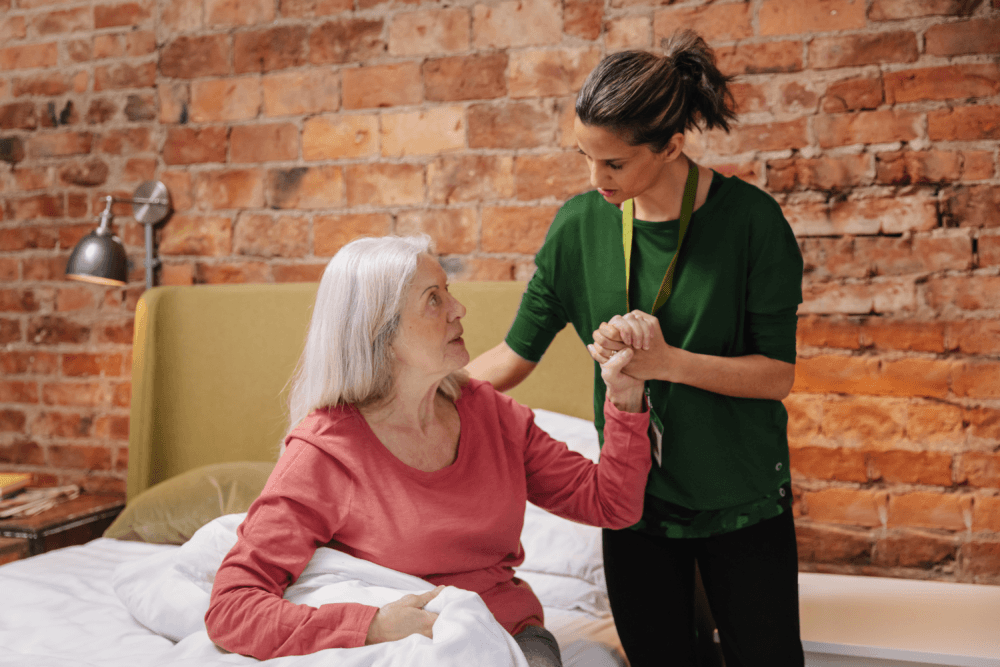
What is cerebral palsy care?
Cerebral palsy is a condition that causes issues with muscle function due to either a brain injury or abnormal brain development from childhood. It affects around 1 in 400 children in the UK, but also impacts adults. There is no cure for this condition, but treatments might include physiotherapy, speech therapy or medications. Also, having effective care for tasks like getting dressed, eating or moving around safely can help to foster independence at home and ensure quality of life.
For cerebral palsy, our Care Professionals can help with:
- Personal care
- Home help and housekeeping
- Medication management
- Mobility assistance
- Running errands
- Arthritis care (which sometimes affects those with cerebral palsy)
Emotional support and companionship
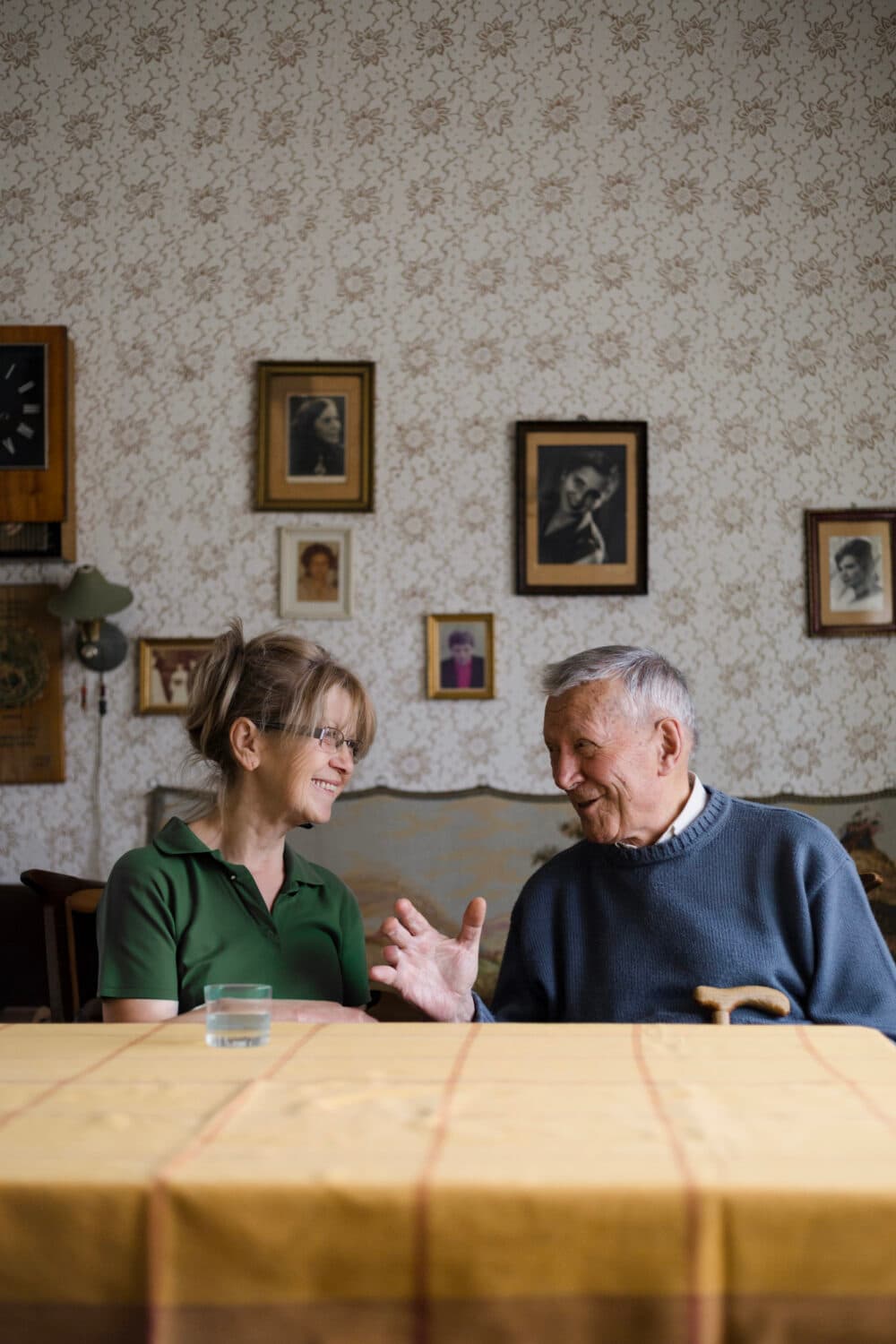
Why is cerebral palsy care at home helpful for older adults?
With age, cerebral palsy can lead to other physical issues like pain or osteoarthritis, so it may be beneficial for older adults with this condition to receive tailored care at home in order to continue living independently. Personalised support from knowledgeable caregivers in a familiar setting allows people with cerebral palsy to have full control over the management of their pain, fatigue and mobility issues.
Home care also facilitates supportive therapies, exercises to improve function, and other tailored interventions to enhance quality of life as much as possible. With home care, older people with cerebral palsy can decide their own daily routine, continue to explore their local area, and maintain connections with loved ones.
Do I need cerebral palsy care?
Some people with cerebral palsy have minor issues and do not need support to live independently, while others have severe disabilities and require regular visiting care or live-in care to manage daily needs and ensure safety.
The person’s GP can typically advise on the needs of an older person with cerebral palsy, and recommend home adaptations, assistive devices, and home care needs. They may require support with medication management and help administering these, as well as help with any additional health care needs they have.
If the person usually has a family caregiver present, respite care can also take over when regular caregivers need time away or have other responsibilities.
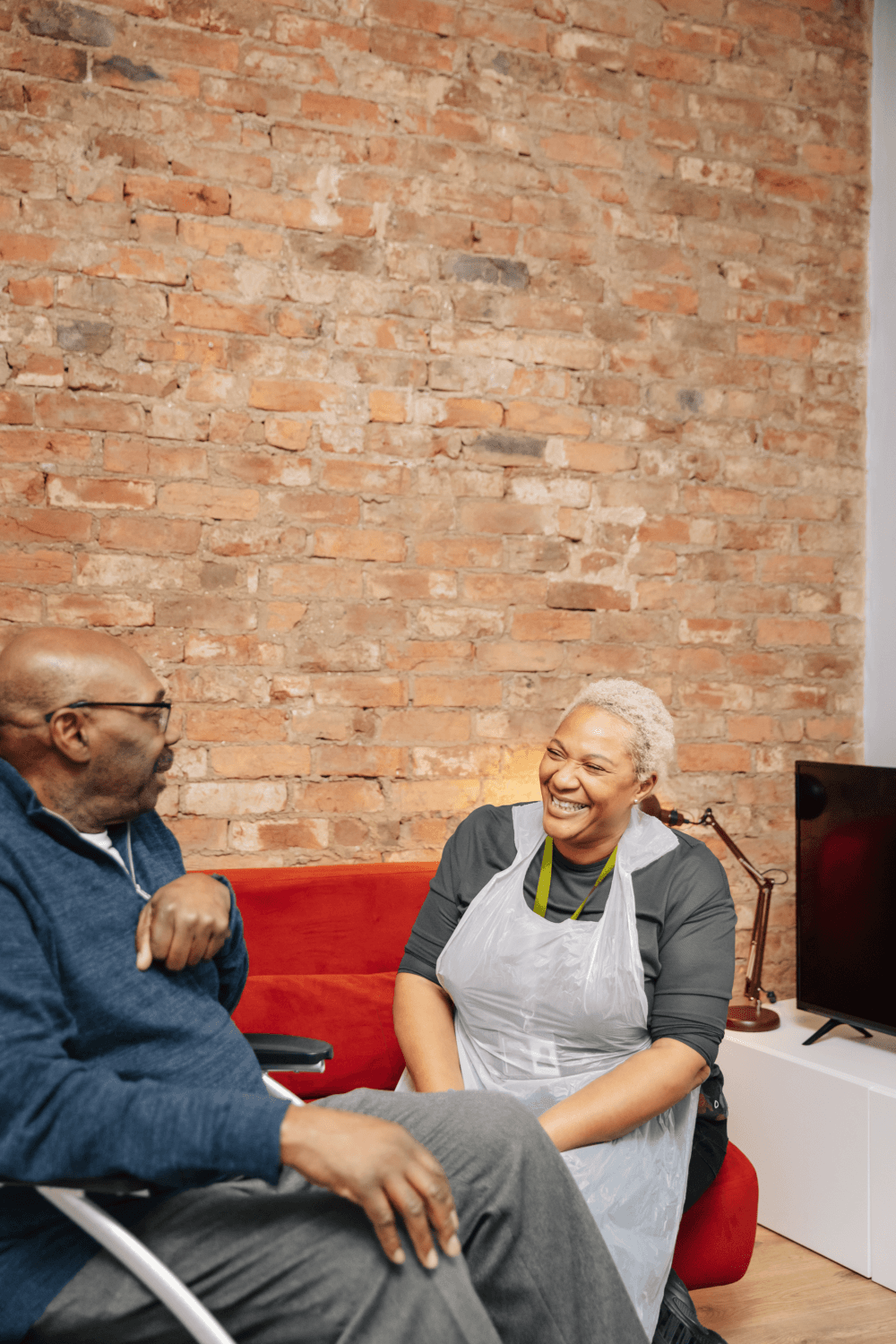
How can we help?
We've helped thousands of families to stay safe, comfortable and happy at home. Whatever situation you're facing, or whatever the question is, Home Instead is here to help.
Are you in need of a little guidance right away?
03300 583450Other non-care-related enquiries

From day one Home Instead has given us a first-class professional caring service. Office staff and carers very helpful and understanding.
Paul and Sandra, Clients
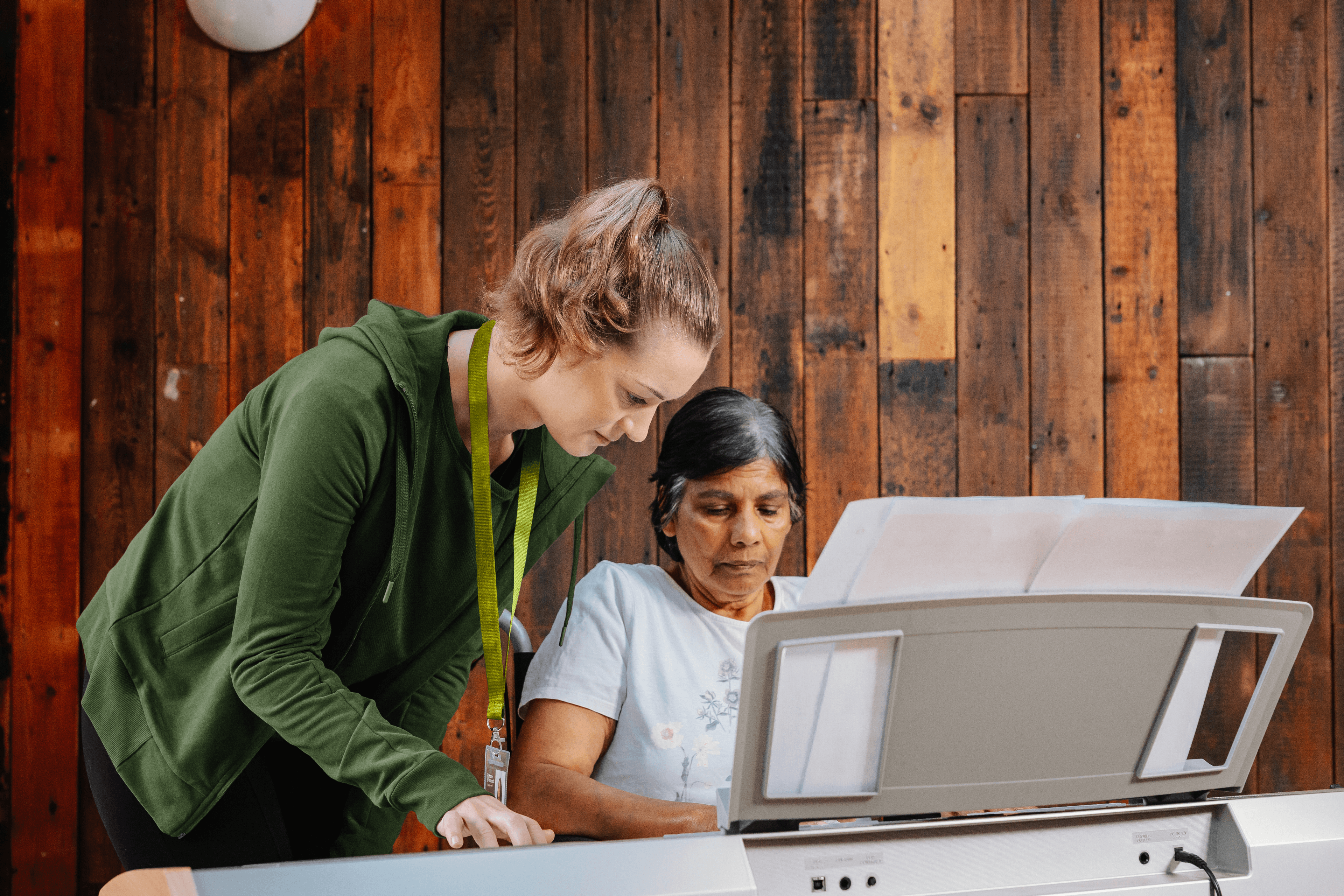
This is a company whose staff really do care on a personal level and who are client orientated, providing stimulative activities, conversation and going the extra mile to help client and family.
Eileen, Client

Home Instead have an experienced caring team that far exceeds in quality anything we experienced from other agencies at this point of service.
Steve, Client
Get in touch today to
see how we can help
Get in touch How to get started arranging cerebral palsy care
If you need cerebral palsy care for yourself or an older loved one, and are unsure where to begin, it usually helps to discuss your needs with the doctor in charge of care or your local council to find out what care may be required. They will usually arrange a Care Needs Assessment to see how you or your loved one gets on at home alone, or you can reach out to a care agency like Home Instead.
Our Care Professionals are highly experienced and trained in a number of different types of care, and we work hard to match each client with a caregiver who has the appropriate skills, knowledge and complementary personality. For those with cerebral palsy, we aim to pair clients with a caregiver who has experience helping others with this condition.
Why Home Instead?
We are proud to be rated 9.6 on Homecare.co.uk, with many of our locations also rated “outstanding” by the Care Quality Commission (CQC), so you can rest assured you or your loved one will be receiving the very best care from experienced professionals.
From mobility assistance at home and on outings, to safe bathing and dressing, to taking over fatiguing housekeeping tasks so you can focus energy elsewhere, we are dedicated to helping those with cerebral palsy to live safely, comfortably and independently. No matter what tailored combination of needs will help you to live confidently at home with cerebral palsy, our Care Professionals can design a bespoke package of care to suit.
Advice & Support
FAQs
- How can home care services support individuals with cerebral palsy?
Our Care Professionals provide tailored support, including assistance with daily activities, mobility, personal care, and therapy exercises. They adapt their approach to meet the unique needs of each individual, promoting independence and comfort.
- Can home care help with mobility challenges in cerebral palsy?
Yes, Care Professionals can assist with mobility aids, transfers, and positioning to ensure safety and reduce strain. They can also support physiotherapy routines and encourage movement to maintain muscle strength and flexibility.
- How do home care services manage complex care needs for individuals with cerebral palsy?
Our Care Professionals are trained to handle complex care tasks, such as feeding through a gastrostomy tube, managing medications, or monitoring for complications like seizures. They work closely with healthcare providers to ensure all medical needs are met.
- How do home care teams support communication for individuals with cerebral palsy?
For those with speech or communication difficulties, Care Professionals can use tools like communication boards, apps, or assistive devices. They also take the time to understand non-verbal cues and foster effective communication.
- How do home care services provide emotional and social support?
All our Care Professionals offer companionship, encourage participation in social activities, and help build confidence. They also provide emotional support to both the individual and their family, creating a positive and nurturing environment.




